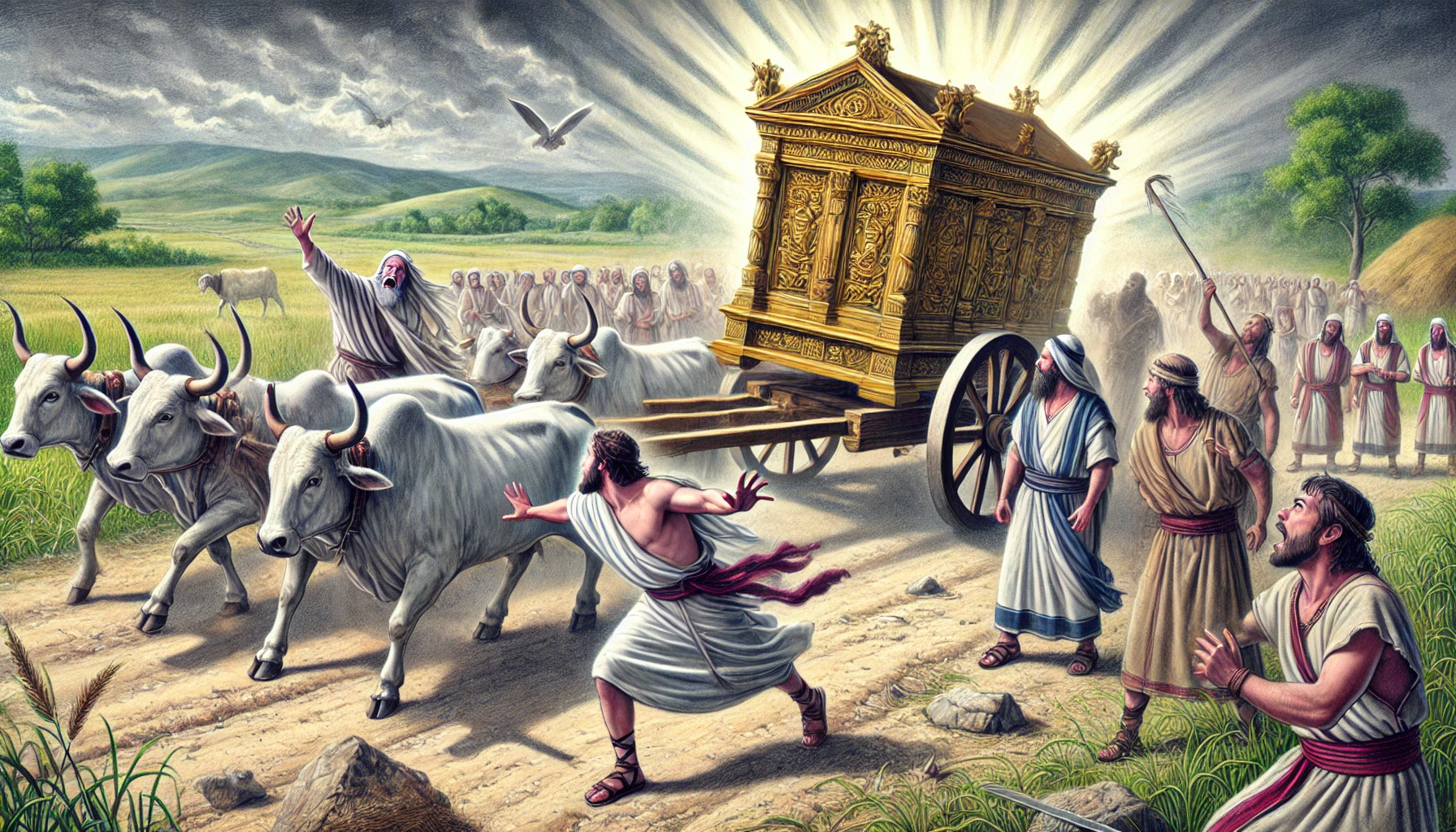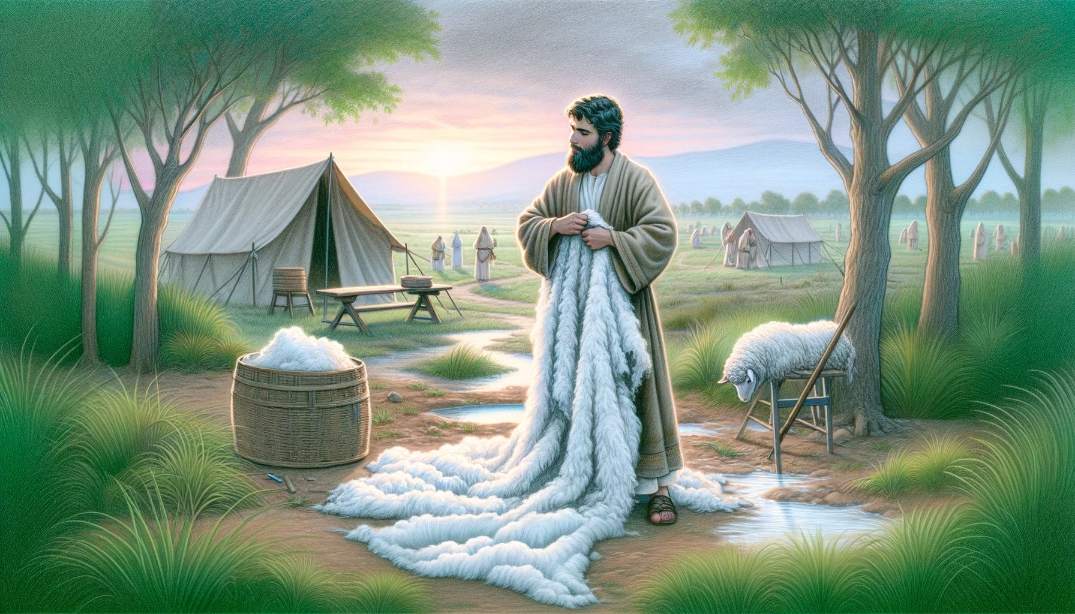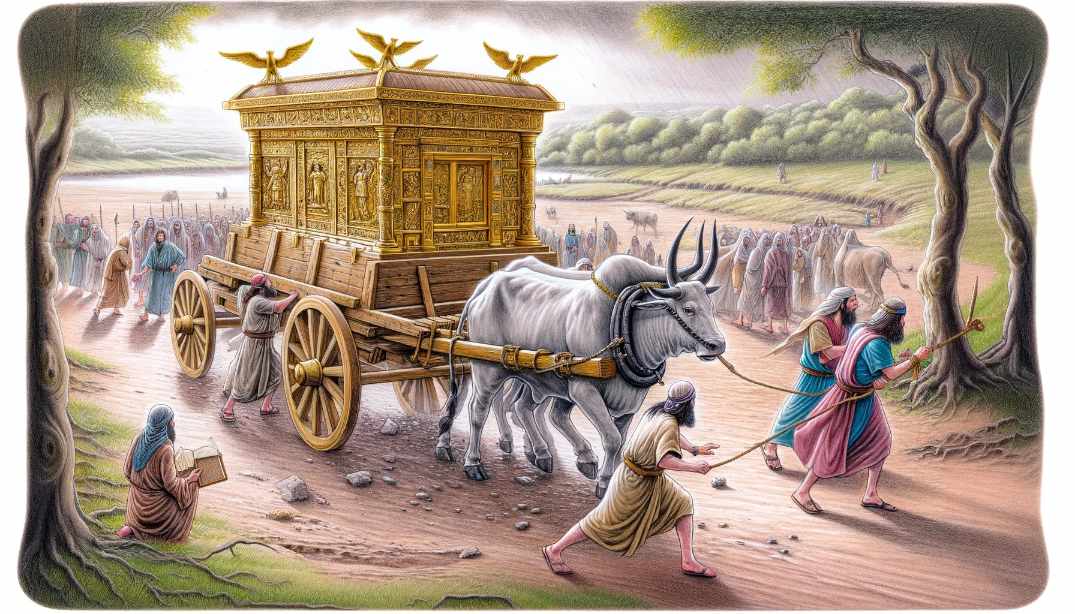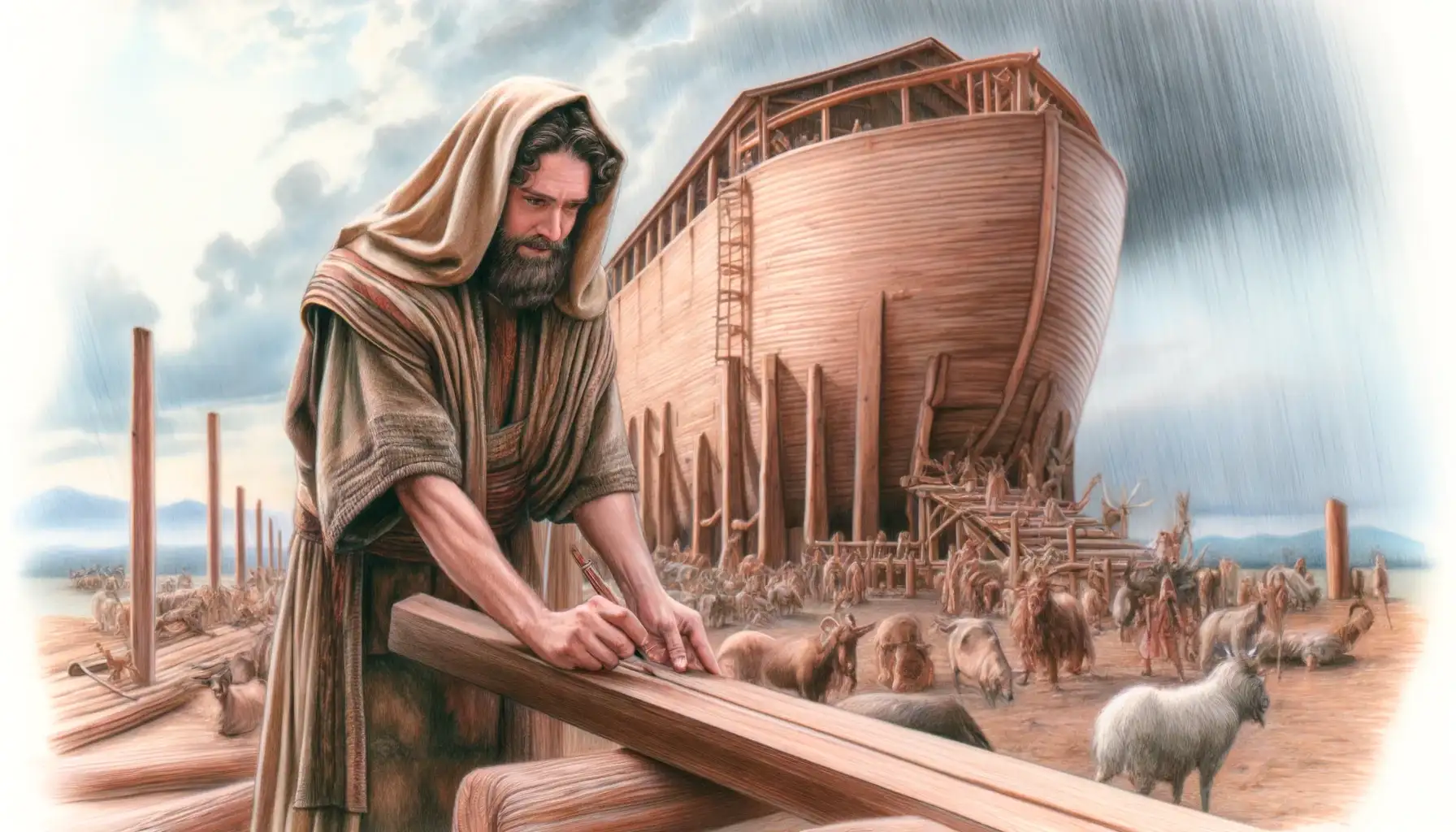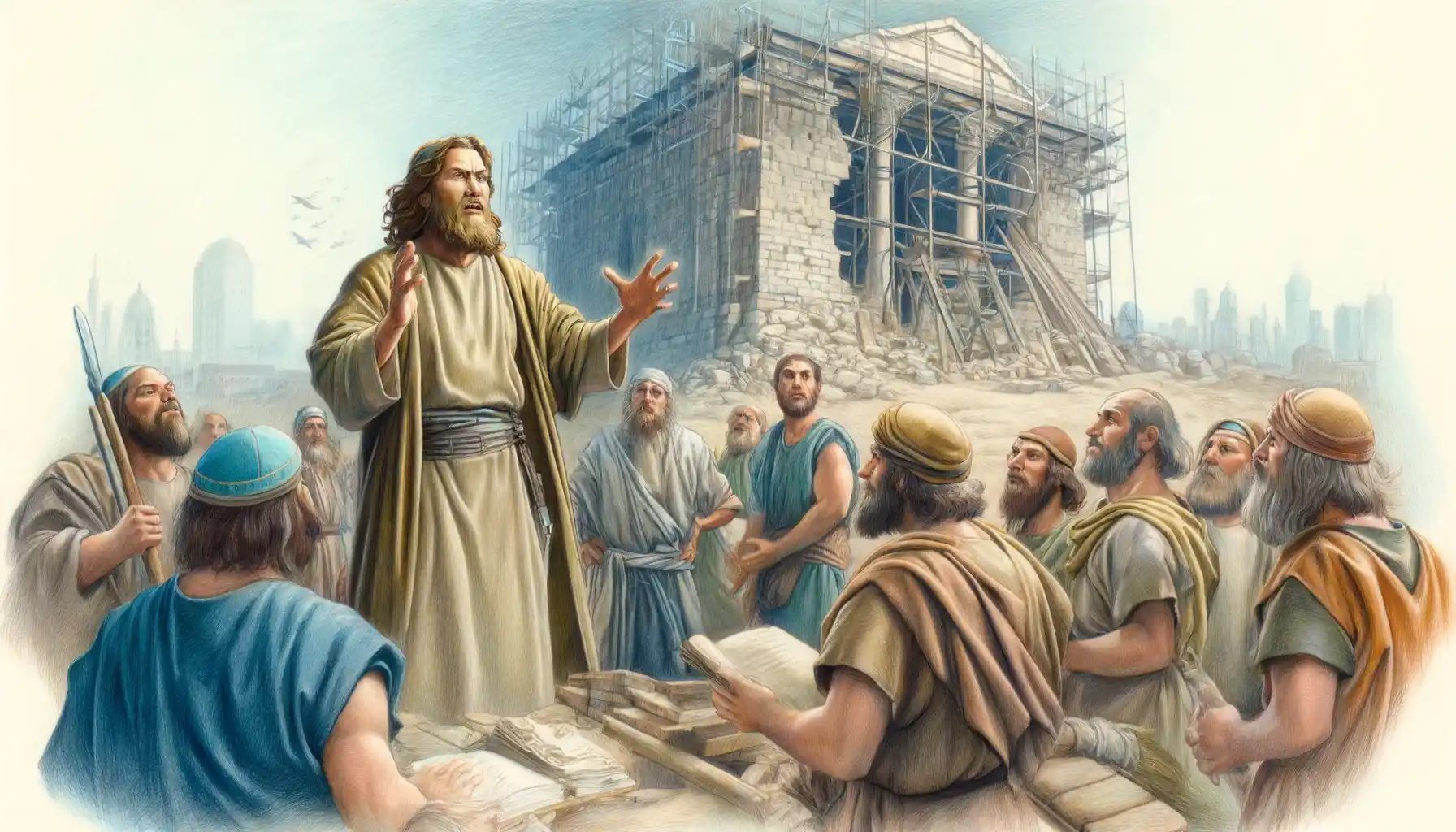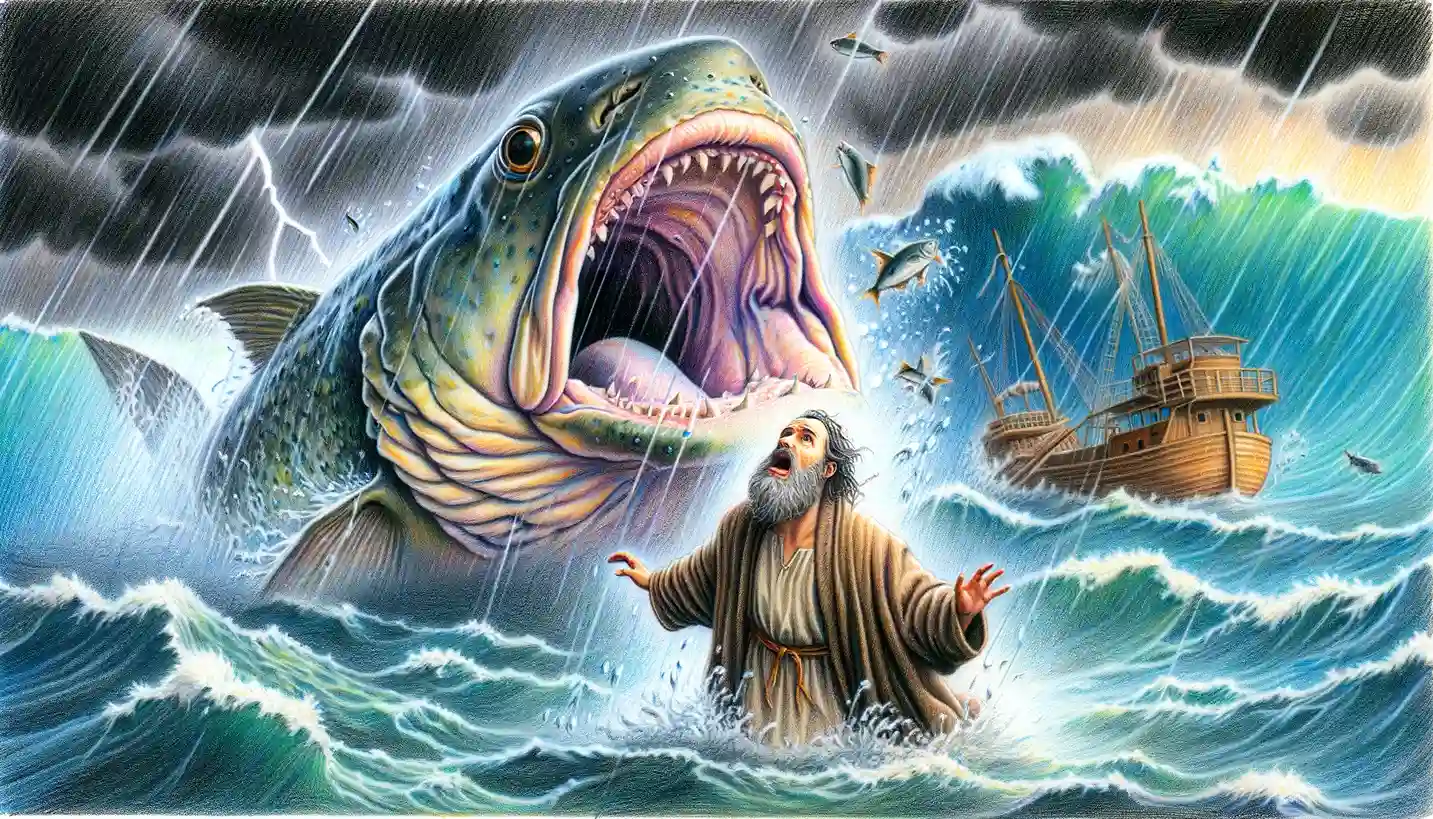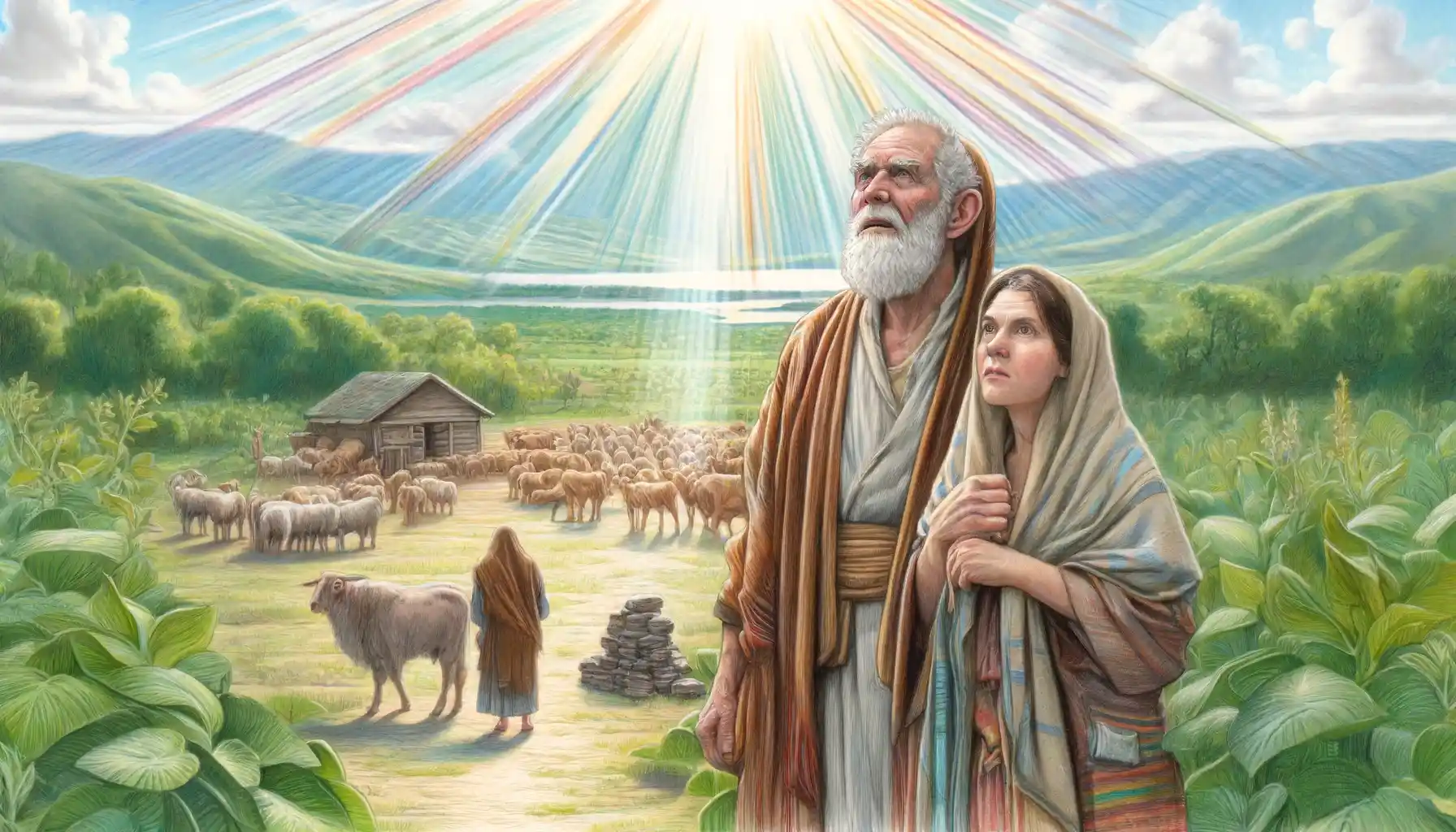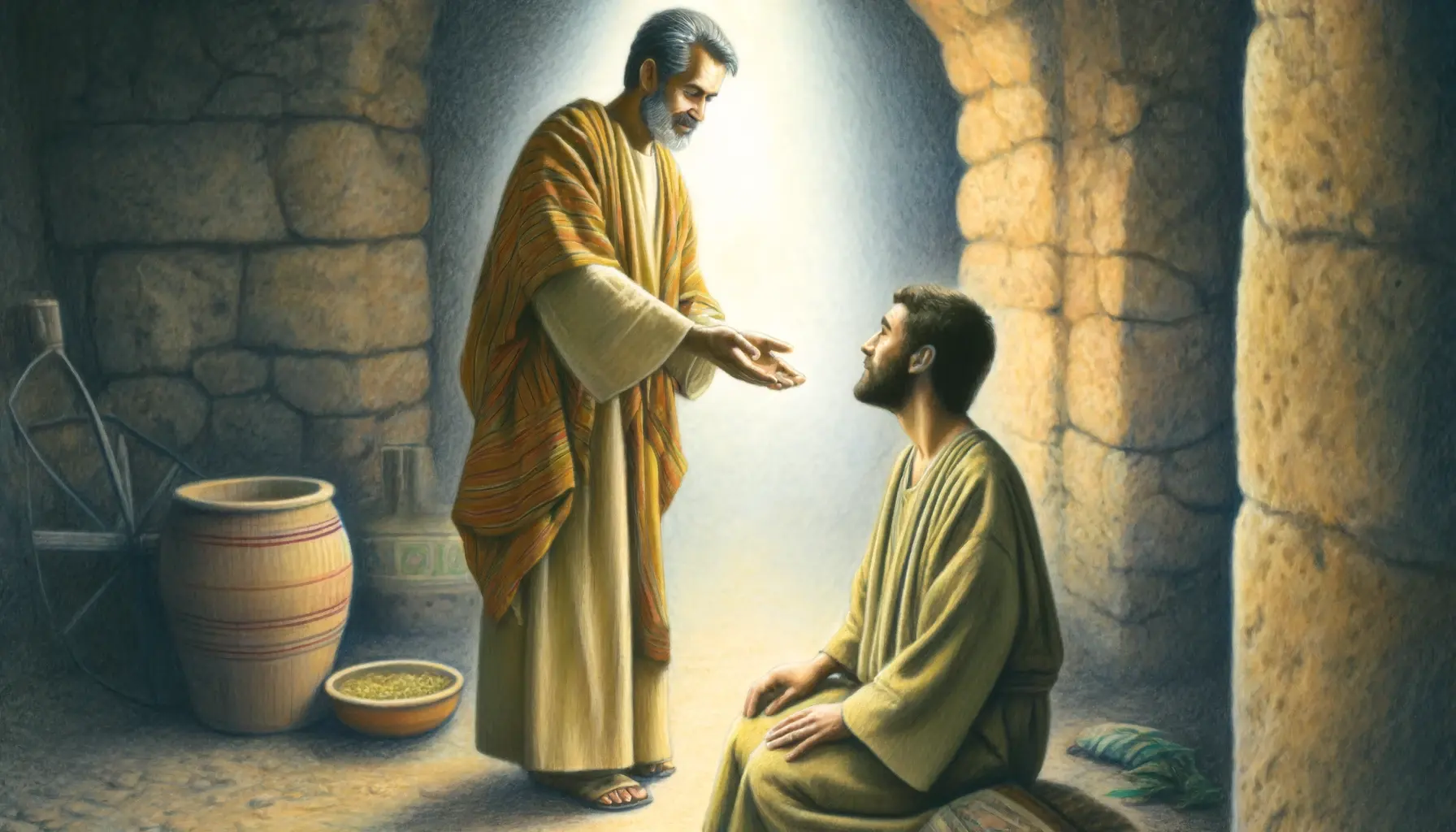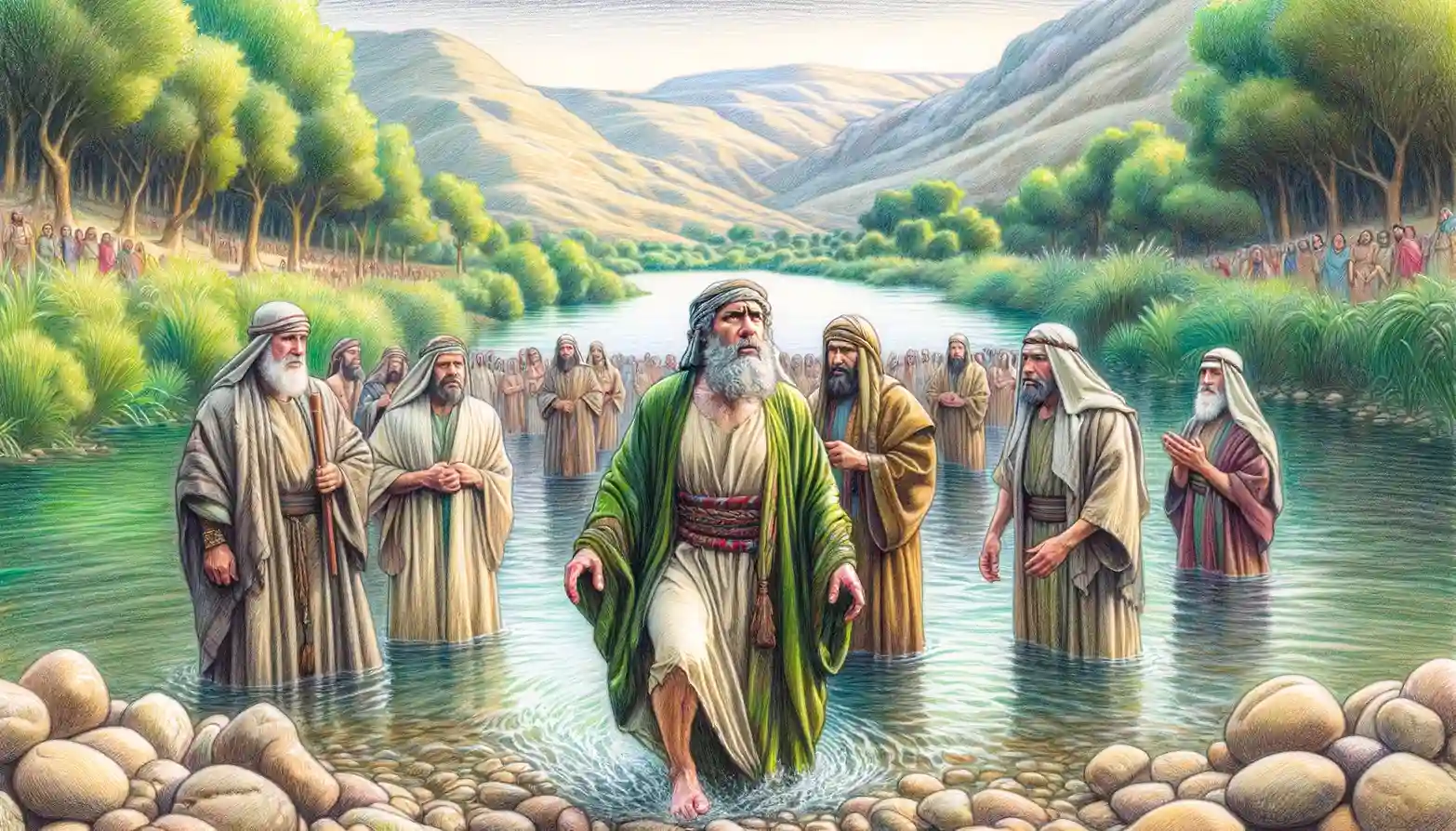Uzzah was struck down by God for touching the Ark of the Covenant when it was being transported, a dramatic demonstration of God’s holiness and the importance of following His commands regarding sacred matters.
Gideon’s fleece is a biblical event where Gideon sought and received two miraculous signs from God involving a fleece of wool to confirm His promise to deliver Israel from the Midianites, highlighting themes of divine patience, human doubt, and the importance of faith and obedience.
The event of Uzzah and the Ark, where Uzzah was struck dead by God for touching the Ark to steady it during its transport to Jerusalem, underscores the absolute holiness of God, the importance of following His specific instructions, and serves as a cautionary tale about the need for reverence and obedience in approaching the divine presence.
Noah, a righteous man chosen by God, built an ark to survive the Great Flood, preserving his family and pairs of every kind of animal, and established a covenant with God promising never to destroy the earth with a flood again.
Haggai, a post-exilic prophet, encouraged the Jews to rebuild the Temple in Jerusalem after their return from Babylonian exile, emphasizing the importance of prioritizing the Temple’s reconstruction to restore their relationship with God.
Joseph, the husband of Mary and a descendant of King David, served as the foster father of Jesus, working as a carpenter and providing crucial protection and support for his family during significant events such as the journey to Bethlehem, the flight to Egypt, and the return to Nazareth.
Jonah, a prophet known for being swallowed by a great fish, initially fled from God’s command to preach to Nineveh, but after being delivered from the fish, he obeyed and led the city to repentance, demonstrating God’s mercy and the power of repentance.
The Call of Abram is a foundational event in the Bible, marking the beginning of God’s covenant relationship with Abram, later known as Abraham, as he obeys God’s command to leave his homeland and journey to Canaan, receiving promises of nationhood, blessing, and a global impact through his descendants, highlighting his exemplary faith and the divine initiative in the unfolding plan of salvation.
Ananias of Damascus, conversion of Saul, Acts 9, early Christianity, Holy Spirit, baptism, divine intervention, obedience, transformation, Christian ministry, faith and trust, spiritual rebirth, early church history, theological significance
In 2 Kings 5, the story of Naaman’s healing from leprosy not only exemplifies the transformative power of simple faith and obedience to God’s commands, as demonstrated by his instructed immersion in the Jordan River, but also highlights themes of humility, the universality of God’s grace, and the severe consequences of greed and deception, illustrated by Gehazi’s downfall.

